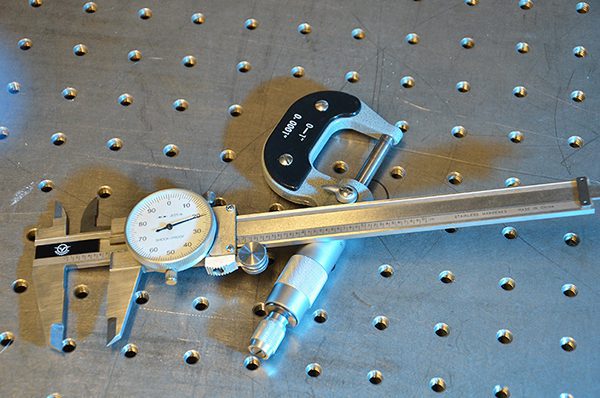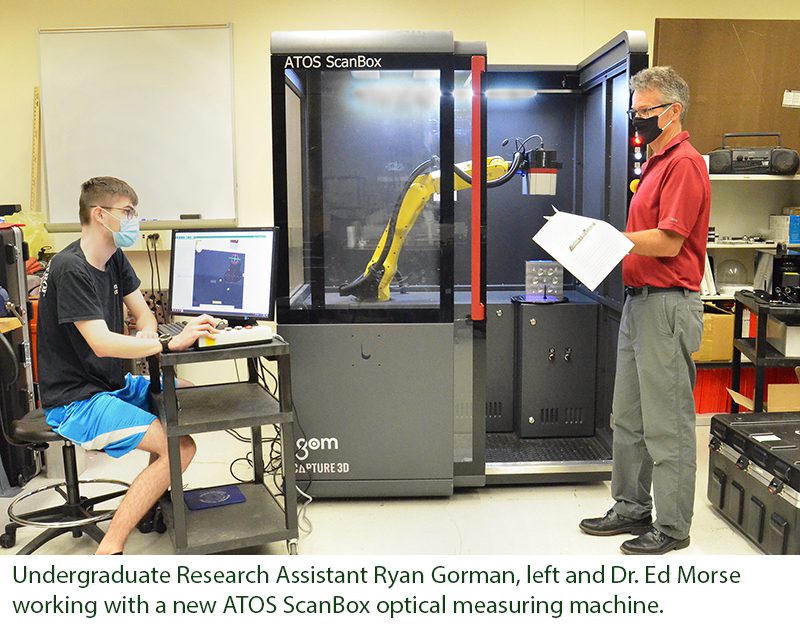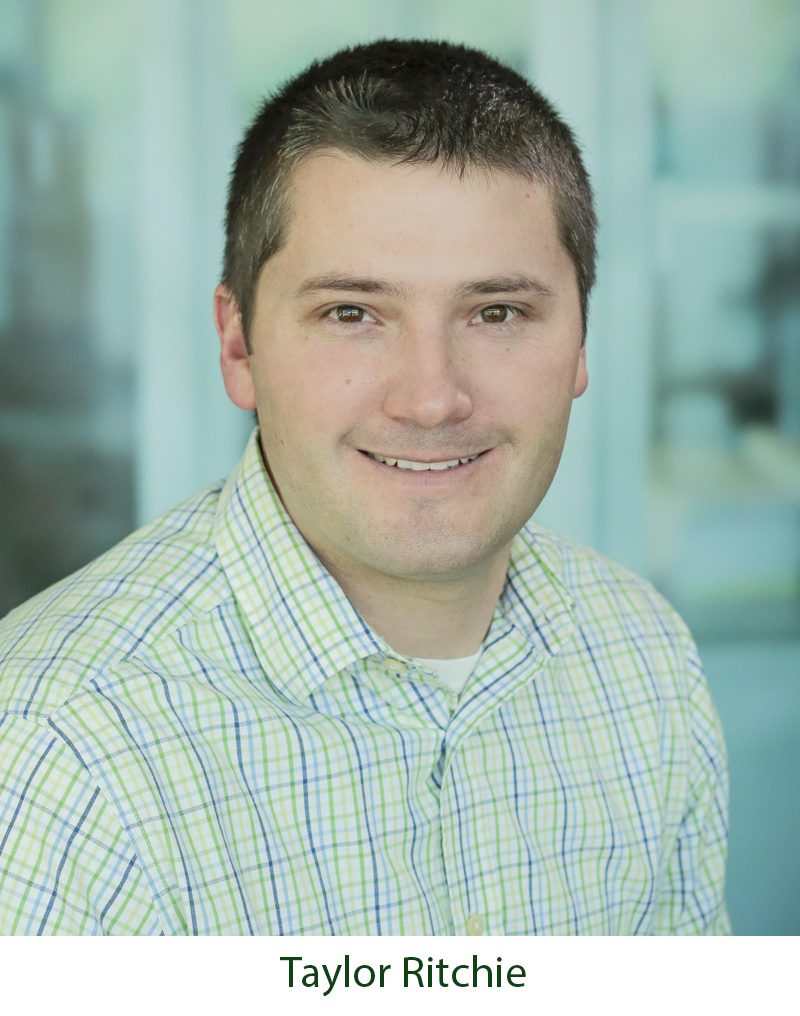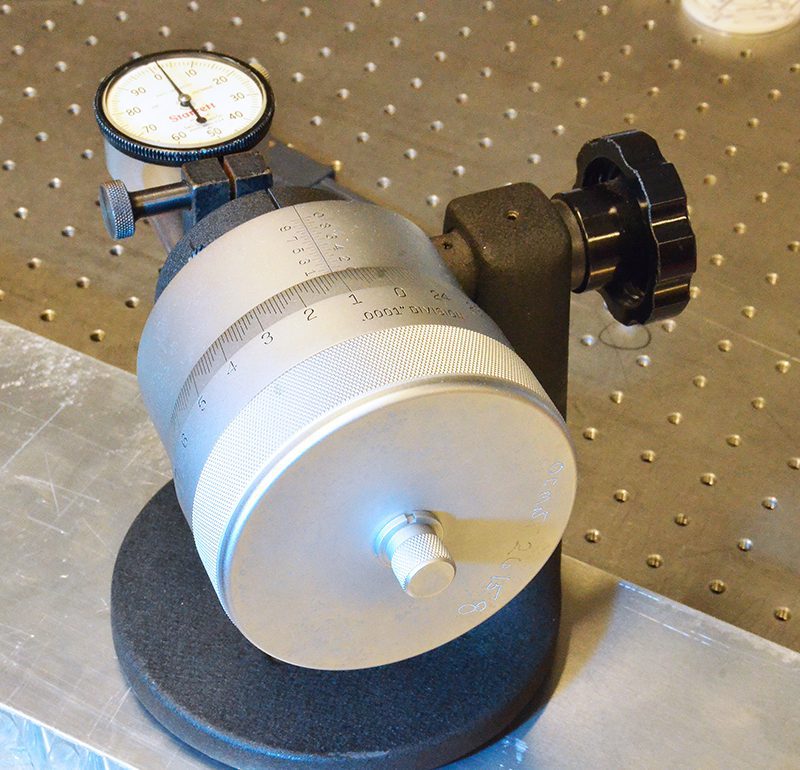Precision Metrology Certificate Program

To provide engineers with advanced coursework about dimensional measurement, The William States Lee College of Engineering’s Mechanical Engineering Department and Center for Precision Metrology offer the Graduate Certificate in Precision Metrology Program. The four-course program is designed with working professionals in mind, offering study topics important to industrial engineering careers through both distance-learning and in-class options.
“There is an awareness problem when it comes to metrology,” said Dr. Ed Morse, deputy director of the Center for Precision Metrology. “A lot of engineering students graduate without having studied metrology, or even knowing what it is. Then they get into jobs where metrology is important, and there is a gap in the engineering knowledge they need.”

The Graduate Certificate in Precision Metrology Program is designed to fill that knowledge gap. The program provides students with a broader understanding of metrology, and exposes them to advanced techniques in dimensional measurement and data analysis.
“The purpose of the certificate is to teach dimensional metrology and its application to industry,” Dr. Morse said. “Our target students are engineers who feel they need more knowledge and ability in metrology, but don’t want to go for a full master’s degree.”
There are 10 students in the current cohort of the program. They include full-time students in Charlotte, and industry professional in other parts of the country.

Certificate program student Taylor Ritchie lives in Colorado, where he is a staff mechanical engineer at Woodward Inc. Ritchie graduated from Colorado State University in 2008, where he studied mechanical engineering, but had very little instruction in metrology.
“My job demands an in-depth knowledge of metrology and how that applies to component design, processing, wear and failure,” Ritchie said, “UNC Charlotte has one of the most comprehensive precision engineering programs in the country. And the remote-learning aspect of it was important to me.”
Ritchie is now in his second year of the program. He takes his classes remotely, using a computer to view and participate in the live lectures. “I like the live session,” he said, “because I can ask questions in real time and hear the questions other students are asking.”
For the laboratory portion of the courses, Ritchie has worked out arrangements with professors and lab managers to come to the UNC Charlotte campus for a few days or a week each semester and do all the lab work during that time.
“The program is absolutely giving me the experience I’m looking for,” Ritchie said. “It’s been very beneficial for my career. I think it’s great.”

The coursework for the metrology certificate includes four graduate-level classes (12 credit hours) of precision metrology courses, taken either in the classroom or remotely. Students must take two required courses, MEGR 6181 Engineering Metrology and MEGR 7182 Machine Tool Metrology. They then select take two addition courses from the list below:
- MEGR 7183 – Precision Machine Design
- MEGR 7185 – Gear Manufacturing and Metrology
- MEGR 7186 – Data Analysis and Uncertainty
- MEGR 7187 – Flexures
- MEGR 7191 – Introduction to Optical Fabrication and Testing
- MEGR 7283 – Advanced Coordinate Metrology
- MEGR 7284 – Advanced Surface Metrology
Applications are now being accepted for fall 2020. Applicants must have a degree in engineering or a closely related field, but there is no GRE requirement. Applicants should submit written description of any relevant and significant work experience, especially as it pertains to metrology.